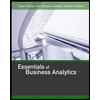nnovation. Recently, the firm conducted a relevant cost analysis of one of its product lines tha ales for T-2 are decreasing and the purchase costs are increasing. The firm might drop T-2 an Barbour allocates fixed costs to products on the basis of sales revenue. When the president o see below), he agreed that T-2 should be dropped. If T-2 is dropped, sales of T-1 are expected he firm's cost structure will remain the same. Sales Variable costs: Cost of goods sold Selling & administrative Contribution margin Fixed expenses: Fixed corporate costs Fixed selling and administrative Total fixed expenses operating income T-1 $ 210,000 T-2 $ 268,000 72,000 22,500 $ 115,500 62,000 14,000 $ 76,000 134,000 52,000 $ 82,000 77,000 23,000 $ 100,000 $ 39,500 $ (18,000)
nnovation. Recently, the firm conducted a relevant cost analysis of one of its product lines tha ales for T-2 are decreasing and the purchase costs are increasing. The firm might drop T-2 an Barbour allocates fixed costs to products on the basis of sales revenue. When the president o see below), he agreed that T-2 should be dropped. If T-2 is dropped, sales of T-1 are expected he firm's cost structure will remain the same. Sales Variable costs: Cost of goods sold Selling & administrative Contribution margin Fixed expenses: Fixed corporate costs Fixed selling and administrative Total fixed expenses operating income T-1 $ 210,000 T-2 $ 268,000 72,000 22,500 $ 115,500 62,000 14,000 $ 76,000 134,000 52,000 $ 82,000 77,000 23,000 $ 100,000 $ 39,500 $ (18,000)
Essentials of Business Analytics (MindTap Course List)
2nd Edition
ISBN:9781305627734
Author:Jeffrey D. Camm, James J. Cochran, Michael J. Fry, Jeffrey W. Ohlmann, David R. Anderson
Publisher:Jeffrey D. Camm, James J. Cochran, Michael J. Fry, Jeffrey W. Ohlmann, David R. Anderson
Chapter15: Decision Analysis
Section: Chapter Questions
Problem 5P: Hudson Corporation is considering three options for managing its data warehouse: continuing with its...
Related questions
Question

Transcribed Image Text:Barbour Corporation, located in Buffalo, New York, is a retailer of high-tech products and is known for its excellent quality and
innovation. Recently, the firm conducted a relevant cost analysis of one of its product lines that has only two products, T-1 and T-2. The
sales for T-2 are decreasing and the purchase costs are increasing. The firm might drop T-2 and sell only T-1.
Barbour allocates fixed costs to products on the basis of sales revenue. When the president of Barbour saw the income statements
(see below), he agreed that T-2 should be dropped. If T-2 is dropped, sales of T-1 are expected to increase by 10 percent next year, but
the firm's cost structure will remain the same.
Sales
Variable costs:
Cost of goods sold
Selling & administrative
Contribution margin
Fixed expenses:
Fixed corporate costs
Fixed selling and administrative
Total fixed expenses
Operating income
Required:
T-1
$ 210,000
T-2
$ 268,000
72,000
22,500
$ 115,500
134,000
52,000
$ 82,000
77,000
23,000
62,000
14,000
$ 76,000
$ 100,000
$ 39,500 $ (18,000)
1. Find the expected change in annual operating income by dropping T-2 and selling only T-1.
2. By what percentage would sales from T-1 have to increase in order to make up the financial loss from dropping T-2? (Enter your
answer as a percentage rounded to 2 decimal places (l.e. 0.1234 should be entered as 12.34).)
3. What is the required percentage increase in sales from T-1 to compensate for lost margin from T-2, if total fixed costs can be
reduced by $42,500? (Enter your answer as a percentage rounded to 2 decimal places (i.e. 0.1234 should be entered as 12.34).)
1.
2. Required % increase in sales from T-1
%
3. Required % increase in sales from T-1
%
Expert Solution
This question has been solved!
Explore an expertly crafted, step-by-step solution for a thorough understanding of key concepts.
Step 1: Introduction of contribution margin:-
VIEWStep 2: Requirement 1 - The expected change in annual operating income by dropping T2 and selling only T1
VIEWStep 3: Requirement 2 - Computation of the percentage of sales increase:-
VIEWStep 4: Requirement 3 - Computation of the percentage of sales increase;-
VIEWSolution
VIEWStep by step
Solved in 5 steps with 4 images

Knowledge Booster
Learn more about
Need a deep-dive on the concept behind this application? Look no further. Learn more about this topic, accounting and related others by exploring similar questions and additional content below.Recommended textbooks for you

Essentials of Business Analytics (MindTap Course …
Statistics
ISBN:
9781305627734
Author:
Jeffrey D. Camm, James J. Cochran, Michael J. Fry, Jeffrey W. Ohlmann, David R. Anderson
Publisher:
Cengage Learning

Cornerstones of Cost Management (Cornerstones Ser…
Accounting
ISBN:
9781305970663
Author:
Don R. Hansen, Maryanne M. Mowen
Publisher:
Cengage Learning

Essentials of Business Analytics (MindTap Course …
Statistics
ISBN:
9781305627734
Author:
Jeffrey D. Camm, James J. Cochran, Michael J. Fry, Jeffrey W. Ohlmann, David R. Anderson
Publisher:
Cengage Learning

Cornerstones of Cost Management (Cornerstones Ser…
Accounting
ISBN:
9781305970663
Author:
Don R. Hansen, Maryanne M. Mowen
Publisher:
Cengage Learning